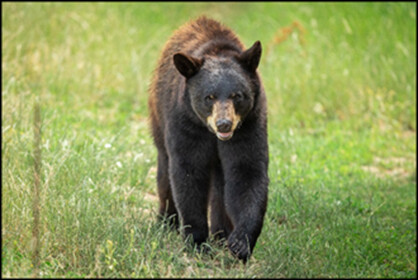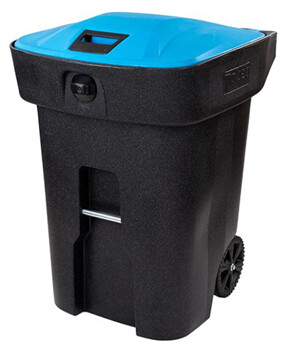New Jersey DEP Takes Action to Minimize Bear Encounters: Free Bear-Resistant Trash Bins for Six Municipalities

As black bears wake from winter hibernation, the state intensifies efforts to curb bear-human interactions with new safety measures and public education.
The New Jersey Department of Environmental Protection (DEP) is launching proactive steps to mitigate bear-human encounters this spring as black bears end their hibernation. Residents in areas prone to bear activity are urged to secure food sources and trash, which can attract bears into neighborhoods, increasing the risk of encounters.

A key initiative announced by the DEP involves the distribution of nearly 3,000 certified bear-resistant trash receptacles in six municipalities noted for frequent bear incidents. These towns include Sparta, West Milford, Jefferson, Rockaway, Hardyston, and Hampton.
This effort is supported by a $500,000 allocation from the Murphy Administration's Fiscal Year 2024 budget, aimed at enhancing public safety and reducing potential conflicts between bears and humans.
In addition to the bear-proof bins, the DEP continues its extensive "Know the Bear Facts" safety campaign. This multimedia outreach, available in both English and Spanish, educates the public on effective bear safety measures through social media, TV streaming, radio broadcasts, and email communications. The campaign is set to run through the fall of 2024, covering the peak periods of bear activity.
The DEP emphasizes several preventative measures for residents to follow:
- Secure garbage in bear-resistant bins or store it in a secure location until collection day.
- Remove food attractants such as pet food, bird feeders, and barbecue grills.
- Regularly clean trash containers to eliminate odors.
- Install electric fencing to protect crops, beehives, and livestock.
Encounter tips include remaining calm, avoiding direct eye contact, and making loud noises to deter bears. The DEP also reminds the public that feeding bears is illegal in New Jersey, with fines of up to $1,000 for violations.
If you encounter a black bear in your neighborhood or outdoors while hiking or camping, follow these safety tips:
- Remain calm. Never run from a bear, as this may trigger its predatory instinct. Instead, slowly back away. Avoid direct eye contact, which may be perceived by a bear as a challenge. Make sure the bear has an escape route.
- To scare the bear away, make loud noises by yelling, using a whistle, banging pots and pans, or blowing an air horn. Make yourself look as big as possible by waving your arms. If you are with someone else, stand close together with your arms raised above your head.
- Make bears aware of your presence by speaking in an assertive voice, singing, clapping your hands, or making other noises. If hiking through bear country, always make your presence known through loud talking or clapping of hands.
- If a bear utters a series of huffs, makes popping jaw sounds by snapping its jaws, or swats the ground, these are warning signs that you are too close. Slowly back away and avoid direct eye contact. Do not run.
- If a bear stands on its hind legs or moves closer, it may be trying to get a better view or detect scents in the air. This is usually a non-threatening behavior.
- Black bears will sometimes "bluff charge" when cornered, threatened, or attempting to steal food. Stand your ground, avoid direct eye contact, slowly back away, and do not run.
- If the bear does not leave, move to a secure area, such as a vehicle or a building.
- Families who live in areas frequented by black bears should have a “Bear Plan” in place for children, with an escape route and planned use of whistles and air horns.
- Black bear attacks are extremely rare. If a black bear does attack, fight back.
For those living in regions frequented by black bears, creating a "Bear Plan" for family safety is advised, incorporating preventive measures and actions to take during an encounter.
This initiative not only aims to protect public safety but also to foster a coexistent environment between New Jersey's residents and the black bear population. For more information on bear safety and the state's efforts, residents can visit the New Jersey Fish & Wildlife website.
Report black bear damage or aggressive bears to your local police department or Fish & Wildlife by calling 1-(877) WARN DEP (1-877-927-6337).














